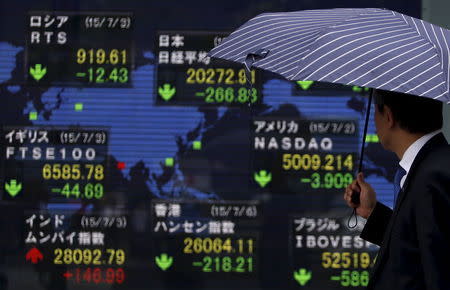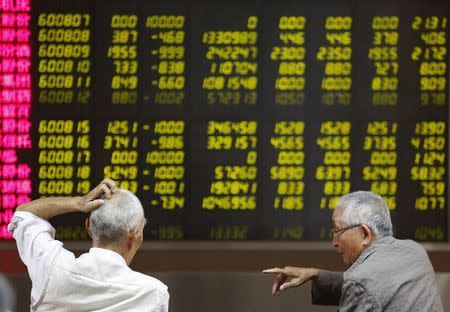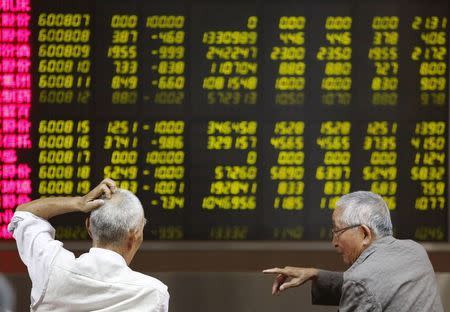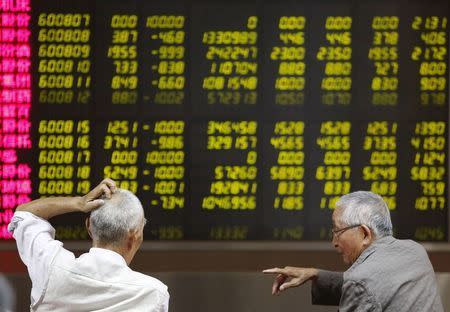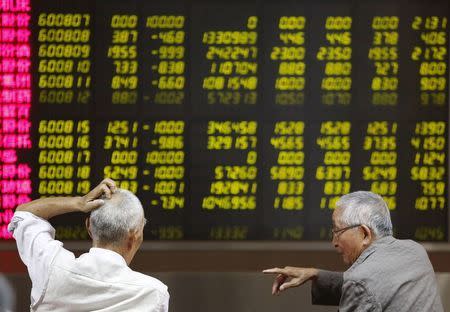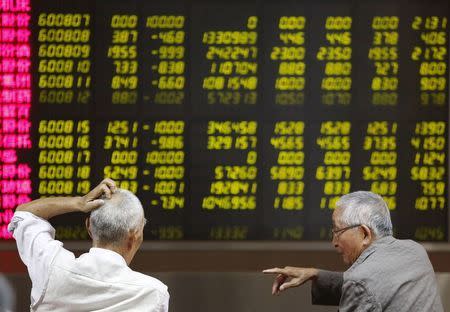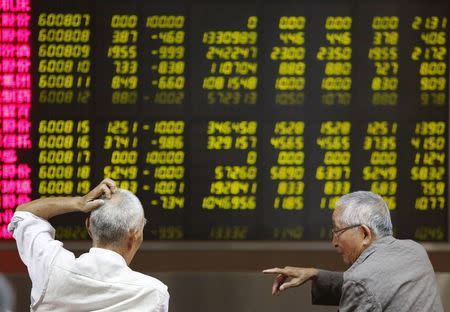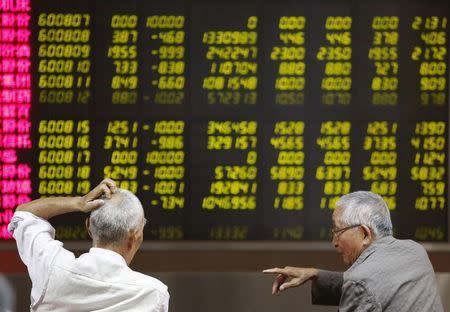Stocks fall, yen jumps on China turmoil; glitch hits NYSE trading
By Caroline Valetkevitch
NEW YORK (Reuters) - World stock indexes fell and the yen jumped against the dollar on Wednesday on concerns over China's market turmoil and lingering worries over the future of Greece in the euro zone.
U.S. stocks ended sharply lower, with investors also unnerved by a more than three-hour suspension in New York Stock Exchange trading. A technical glitch forced the halt, not a cyberattack, the exchange said.
Chinese shares have lost more than 30 percent in value since mid-June and investors are worried the market turmoil there could destabilize the global economy.
The yen rose to a seven-week high against the dollar as investors sought safe-haven assets. U.S.-dollar denominated Nikkei futures were down 5.5 percent, on track for their biggest daily drop since Aug. 8, 2011.
"I don't think the Greece situation is a focus in the markets beyond the short term," said Tim Ghriskey, chief investment officer of Solaris Group in Bedford Hills, New York. "This is really about China, where the selloff continues unabated despite efforts by People's Bank of China to halt this."
MSCI's all-country equities world index lost 1.2 percent, while the Dow Jones industrial average fell 261.49 points, or 1.47 percent, to 17,515.42.
The S&P 500 lost 34.66 points, or 1.67 percent, to 2,046.68 and the Nasdaq Composite dropped 87.70 points, or 1.75 percent, to 4,909.76.
European shares ended up 0.1 percent, snapping a four-day losing streak.
Greece made a formal request for a three-year loan deal from the euro zone rescue fund.
The bloc's leaders gave Athens until the end of the week to come up with proposals for reforms in return for loans absent which Greece is likely to crash out of Europe's single currency zone.
Beijing's steps to stabilize its turbulent markets in recent weeks have met with little success. On Wednesday, more than 500 China-listed companies announced trading halts on the Shanghai and Shenzhen Exchange, taking suspensions to about 1,300, or 45 percent of the market.
The dollar fell to its lowest since May 19 at 120.46 yen. It was last at 120.68 yen, down 1.5 percent. The euro also dropped against the yen, down 1.1 percent at 133.38 yen, after earlier sliding to a six-week low.
Commodity markets, among the most exposed to China, were slowly starting to regain their footing. Benchmark copper on the London Metal Exchange climbed as the dollar slipped. It ended up 3.4 percent at $5,520 a tonne after hitting a six-year low of $5,240.
Gold also rose as the dollar softened, with spot gold up 0.6 percent at $1,161.60 an ounce.
FED MINUTES LIFT BOND PRICES
U.S. Treasury debt prices rose, extending gains as investors grew more risk averse on new signs that Federal Reserve policymakers may be hesitant to start raising U.S. interest rates.
Other markets had little reaction to the release of minutes from the Fed's last meeting, which showed U.S. central bank officials needed to see more signs of a strengthening U.S. economy before raising rates.
The 10-year note was last ahead 7/32 and yielding 2.2064 percent after yielding as little as 2.1760 percent, also last seen on June 2. A week ago, the 10-year yielded 2.425 percent.
U.S. crude futures fell more than 1 percent after a surprise build in stockpiles. U.S. crude settled down 68 cents at $51.65 a barrel, while Brent settled up 20 cents at $57.05.
(Additional reporting by Noel Randewich in San Francisco and Gertrude Chavez-Dreyfuss and Barani Krishnan in New York; Editing by Meredith Mazzilli and James Dalgleish)


